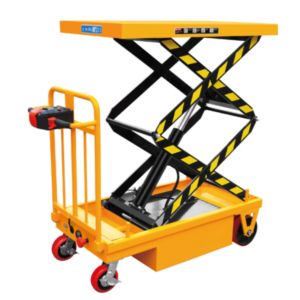Choosing the Right Tractor Fork-Lift Truck for Your Needs
In the world of material handling and agricultural operations, the right equipment can make all the difference in productivity and efficiency. Tractor fork-lift trucks are versatile machines that combine the capabilities of a tractor with the functionality of a fork-lift. Selecting the right model to suit your specific needs can be a daunting task given the wide variety of options available. This guide will help you navigate the key factors to consider when choosing the perfect tractor fork-lift truck for your operations.
Assess Your Operational Requirements
Before diving into the specifics, it’s crucial to have a clear understanding of your operational requirements. Consider the following questions:
What type of materials will you be handling? This can range from pallets and containers to bulk materials like hay and feed.
 ForkLift lifting platform | China Manufacturer Trade supplier Materials Handling lifting platform Truck Sale Buy Online Trade Importer of Industrial Equipment BUY in USA/UK/India/Australia
ForkLift lifting platform | China Manufacturer Trade supplier Materials Handling lifting platform Truck Sale Buy Online Trade Importer of Industrial Equipment BUY in USA/UK/India/Australia
What is the maximum load capacity you’ll need? Different models offer varying lifting capacities.
In what kind of environment will the machine operate? Indoor, outdoor, rough terrain, or confined spaces can dictate the type of machine you need.
Having a clear picture of your requirements will help narrow down your options.
Load Capacity and Lifting Height
One of the most critical factors to consider is the load capacity and lifting height of the tractor fork-lift truck. Ensure that the model you choose can handle the maximum weight of your loads and lift them to the necessary heights. Overloading a machine beyond its capacity can lead to accidents and equipment damage, so it’s essential to choose a model that meets or exceeds your requirements.
Power Source
Tractor fork-lift trucks can be powered by various sources, including diesel, electric, and hybrid engines. Each power source has its advantages and disadvantages:
Diesel-powered models are known for their durability and high torque, making them ideal for heavy-duty tasks and outdoor operations. However, they emit exhaust fumes and can be noisy.
Electric-powered models are eco-friendly, produce zero emissions, and operate quietly. They are suitable for indoor use and environments where air quality is a concern. Their downside is the need for regular battery charging.
Hybrid models offer a balance between the two, providing the power of diesel with the eco-friendliness of electric engines. They are versatile but may come at a higher cost.
Maneuverability and Terrain Adaptability
The maneuverability of the tractor fork-lift truck is crucial, especially if you’re working in tight spaces or rough terrain. Consider the turning radius and steering capabilities of the machine. Models with four-wheel steering or articulated steering offer enhanced maneuverability. Additionally, ensure that the machine is equipped with the appropriate tires for the terrain it will operate on, such as solid tires for indoor use or pneumatic tires for outdoor and rough terrains.
Safety Features
Safety should always be a top priority. Look for tractor fork-lift trucks that come with advanced safety features such as:
Load stabilization systems to prevent tipping.
Rollover protection to safeguard the operator in case of accidents.
Visibility enhancements, including cameras and mirrors, to provide a clear view of the surroundings.
Automated braking systems to avoid collisions.
These features can significantly reduce the risk of accidents and injuries, ensuring a safer working environment.
Operator Comfort and Ergonomics
A comfortable operator is a productive operator. Choose a tractor fork-lift truck that offers ergonomic features such as adjustable seats, intuitive controls, and climate-controlled cabins. Reduced vibration and noise levels also contribute to operator comfort, allowing them to work efficiently for extended periods.
Budget and Total Cost of Ownership
While the initial purchase price is an important consideration, it’s also essential to factor in the total cost of ownership. This includes maintenance, fuel or electricity costs, and potential repair expenses. Investing in a high-quality, reliable machine may have a higher upfront cost but can lead to long-term savings through reduced downtime and lower maintenance expenses.
Conclusion
Choosing the right tractor fork-lift truck for your needs requires careful consideration of various factors, including load capacity, power source, maneuverability, safety features, and operator comfort. By assessing your operational requirements and evaluating these factors, you can select a machine that enhances productivity, efficiency, and safety in your operations. Make an informed decision and invest in a tractor fork-lift truck that meets your specific needs, ensuring a seamless and successful material handling experience.
